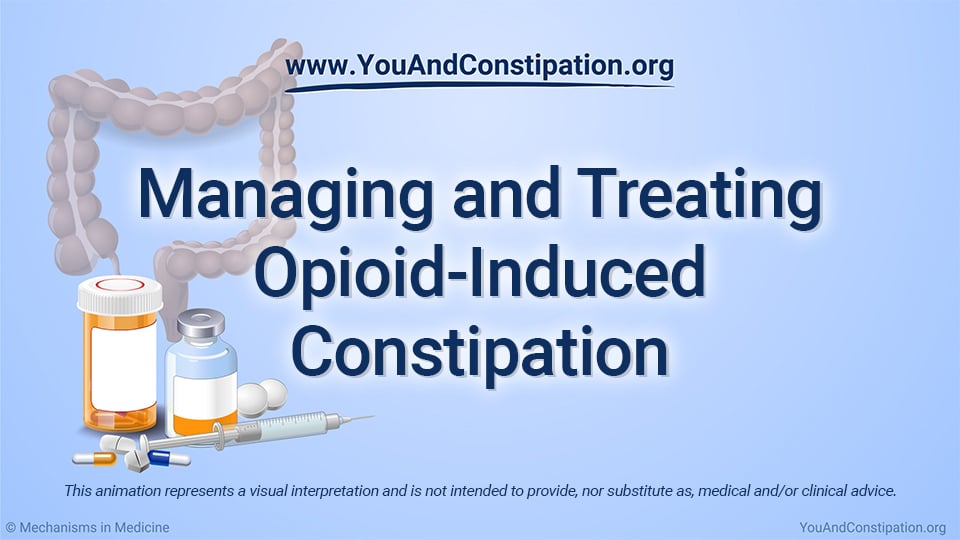How is Opioid-Induced Constipation (OIC) Managed and Treated?
There are different ways of managing and treating opioid induced constipation (OIC). Your healthcare provider will ask about your diet and lifestyle and recommend non-prescription medicines. If these do not work, they might prescribe a different pain medicine or a medicine to treat OIC.

Your healthcare provider should make sure opioid medicines are the best choice for treating your pain when they prescribe them and place you on the lowest dose needed to control your pain. A healthcare provider specializing in pain management is a vital part of your health care team. They can work with your healthcare provider to find ways to prevent OIC and other side effects or lower the risk of OIC.
Medications for OIC:
Non-prescription laxatives
Taking non-prescription laxative medicines may help you manage opioid induced constipation. These medicines work in different ways to make it easier to have a bowel movement. They can stimulate the nerves in your digestive system, soften the waste, or make it bulkier.
You might need to try different types of laxatives or take more than one. For example, you can take a type of laxative called a “stool softener” that makes your stool easier to pass. Or you can take a type called a “stimulant laxative” that makes the nerves in your digestive system more active and sensitive. This can get your digestive system moving again. Your healthcare provider may recommend that you take both types or a different type of laxative.
Polyethylene glycol is another type that may help increase the amount of water in the intestinal tract to stimulate bowel movements. Your healthcare provider can help you decide which laxatives work best and how much you will need to take.
Prescription medicines
If laxatives do not help your OIC, you may want to speak with your healthcare provider about prescription medicines.
- Lubiprostone (Amitiza®)
Lubiprostone works through the activation of chloride channels in the bowel. This leads to increased bowel movement frequency. It is currently FDA approved specifically for use in women. This is due to the limited number of men that were enrolled in the initial trials. This drug has proven to be effective in men as well. Common adverse events include nausea and diarrhea. Lubiprostone is also FDA approved for the treatment of opioid induced constipation (OIC) in people with chronic non-cancer pain related illnesses. It is also approved for those with chronic idiopathic constipation (CIC) and constipation predominant irritable bowel syndrome (IBS-C).
- Methylnaltrexone bromide (Relistor®)
Some medicines keep opioids from attaching to the receptors in your digestive system and slowing it down. These medicines are called “opioid antagonists.” They “fight” the normal action of the opioids in your intestines without affecting pain control. Methylnaltrexone bromide is FDA approved for the treatment of opioid-induced constipation in advanced-illness patients who are receiving palliative care when the response to usual laxative therapy has not been sufficient. Palliative care is care given to improve the quality of life of patients who have a serious or life-threatening disease, such as cancer. Palliative care is an approach to care that addresses the person, not just their disease.
Talking to Your Healthcare Provider About OIC
Tell your healthcare provider if you have constipation when taking opioid medicines. If one way of treating constipation does not work, ask what else you can try. This might include switching to a different pain medication. Your healthcare provider can help you find the best way to control pain and avoid constipation.
Want to learn more?
Visit You and Constipation to learn more about Opioid induced constipation or click on the button below to watch a short video about how to manage and treat OIC.

Adapted from IFFGD Publication #155 “Managing and Treating OIC” by IFFGD, edited by Satish Rao














